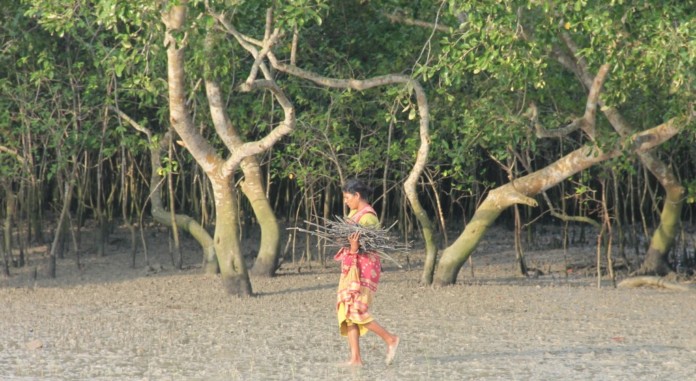The first Livelihoods Carbon Fund has helped women plant 16 million trees in Sundarbans National Park near Kolkata. The women were trained by the NGO NEWS to manage the nurseries that strengthen dikes and embankments that protect villages and arable lands from flooding.
The forests also ensure food security and revenues as they harbor crabs, shrimps and mollusks that can be sold in local markets. This project touched 250,000 beneficiaries, restored nearly 111,200 acres of forest and will sequester 750,000 tons of CO2 over two decades.
The Livelihoods Carbon Fund, ties global sustainable economic development to emissions reduction from Danone, SAP, Schneider Electric and five other corporations.
The second fund aims to reach about $118 million investment in ecosystem restoration, agroforestry and renewable energy projects next year in Africa, Asia and Latin America, which will avoid or sequester up to 25 million tons of CO2 over 20 years.
“The Livelihoods fund creates a link between these worlds,” said Bernard Giraud, co-founder of the Livelihood and Danone’s former senior sustainability advisor. “Companies invest in the fund, which finances projects that improve the lives of rural communities while mitigating climate change.”
Unique Investment Option
What’s unique about this mutual fund (which divides risk among several investors) is that dividends are paid out in carbon credits, not cash. Using the principle of additionality — where an investment allows a new sustainability effort to exist — companies can voluntarily offset their greenhouse gas emissions along with their own carbon-reduction efforts while providing resources to vulnerable communities around the world.
“We already have ($65 million) in investment” from Credit Agricole, Danone, perfume and flavor company Firmenich, Hermès, Michelin, SAP, Schneider Electric and travel agency Voyageurs du Monde, said Giraud, who hopes to inspire other companies to join.
The carbon credits are certified by Gold Standard, established by the World Wildlife Foundation in 2003 to guarantee and benchmark the climate impact of a project and its contribution towards improving the daily lives of local communities and their economy.
This new initiative is the second iteration of a Livelihoods fund launched in 2011 with investments from 10 companies — the eight involved in the recent effort plus La Poste and financier Caisse des Dépôts. That fund reports benefiting one million people in developing countries, planted 130 million trees, equipped 120,000 families with efficient cookstoves and helped sequester 10 million tons of CO2 in projects spanning 10 to 20 years.
Investing in version two is a logical consequence, with benefits based on the initial results,” he said. “This new project is part of the ‘next wave’ of carbon projects with social benefits.”










